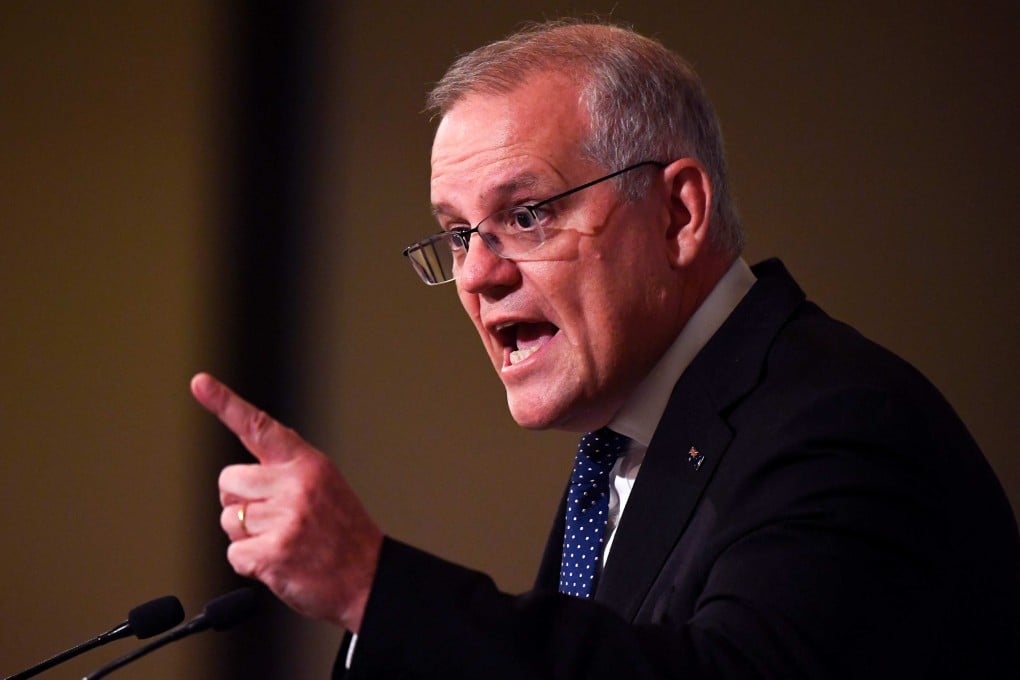As I see it | Australia election: a Scott Morrison victory could be a ‘red line’ for Canberra’s Pacific diplomacy
- Australia’s incumbent prime minister thinks nothing of issuing threats to sovereign nations, as he did with the Solomon Islands over its China security pact
- Call it cowardly tantrums or hysteria, but threats of ‘red lines’ are never welcome. Morrison’s careless words also set a dangerous precedent

And that’s not counting the number of times he’s been asked about it outside of that 30-minute interview.
Yet in his two minutes “response” during his televised election pitch to voters ahead of Saturday’s federal election – already hailed as a nail biter – Morrison never answered the question.
Like the seasoned politician that he is, he wiggled his way out of it by talking up his handling of Australia’s relationship with the Solomons and suggesting, not for the first time, that he knew what was in the Pacific nation’s best interests.
Which couldn’t be further from the truth. Manasseh Sogavare, the islands’ prime minister, is infuriated at being patronised and has called out the Morrison government and its Western allies for their hypocrisy.
Sogavare recently told parliament that Australia was only paying lip service to the Solomon Islands’ sovereignty, adding that opponents of the security pact had insulted his country and threatened to invade. Morrison denied the allegation.
